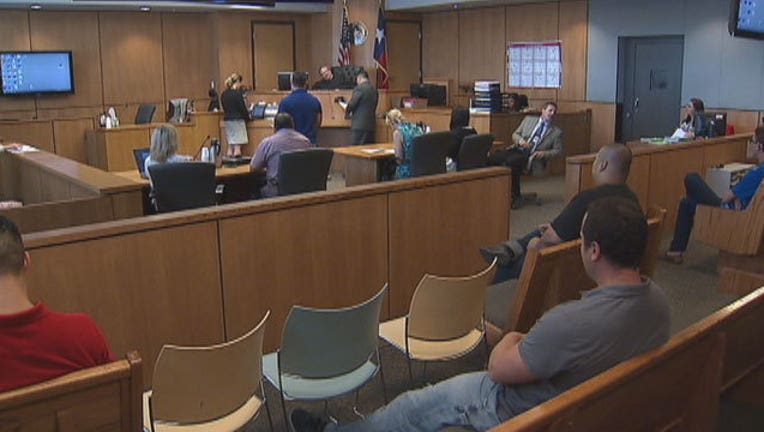Panel: No criminal charges in student's suicide after hazing

PITTSBURGH (AP) — A Pennsylvania grand jury says no criminal charges should be brought in a university student's suicide that his family blames on a fraternity hazing.
The grand jury reported Tuesday that 18-year-old Marquise Braham, a student at Penn State-Altoona, had left a note indicating he contemplated killing himself since he was a child. The panel said it found no evidence linking the Phi Sigma Kappa fraternity hazing to Braham's death while home in New York during the school's 2014 spring break.
"Rather the evidence points to a young man who though he had a sunny and very pleasant exterior, had been contemplating suicide for a very long time," the grand jury said. "(This) investigation and this Report should shine a light on what can happen to vulnerable 18 year olds when they go off to college."
While several grand jury witnesses described hazing similar to that alleged by Braham's family, the grand jury in recommending no criminal charges cited "conflicting views and the unwillingness or inability of the former pledges to name other individual fraternity brothers as hazing them."
Braham's family said in a statement that they were "disappointed, though not surprised" by the decision. They said the grand jury was denied access to some "substantial" evidence and testimony from mental health experts and Braham's friends and relatives.
"They interviewed a bunch of kids that were in a frat and kept their mouths shut," family spokesman Mike Paul said. "Remember, fraternities are secret societies. Their whole mission is to keep things quiet."
The family last month sued the school and the fraternity — which has been suspended for six years — claiming the hazing drove Braham to jump off a hotel roof in Uniondale, New York, on March 14, 2014.
The freshman was forced to "consume gross amounts of alcohol" and mouthwash, swallow live fish, and kill, gut and skin animals, the suit alleges. The suit also claims he was made to fight fellow pledges, was burned with candle wax, was deprived of sleep for 89 hours and had a gun held to his head as part of the hazing activities.
The lawsuit contends Braham also "struggled deeply with having to witness and participate in the hazing of others," and killed himself the day before he was to return to the fraternity house. The school knew Braham was "suffering physically, psychologically and academically" but disregarded the information, the suit alleges.
The grand jury report supports most of the hazing claims, though no mention is made of animal abuse or guns.
The panel referenced two suicide notes. One included the line "I should have died a long time ago"; the other said, "In all honesty, I saw this coming since I was a child so I apologize to those of you who are surprised by this."
Paul said the second note was left on a phone when Braham "had a tremendous amount of alcohol in his system." The first note, left in his mother's car while he was sober, references "a long time," Paul said. "A 'long time' to an 18-year-old could be within the same year he's being hazed."
A school spokeswoman said the school planned to release a statement later.
A fraternity official didn't immediately respond to phone calls and emails left for comment, but an attorney representing pledge class members who testified before the grand jury was "pleased" there were no charges and agreed with the grand jury findings.

